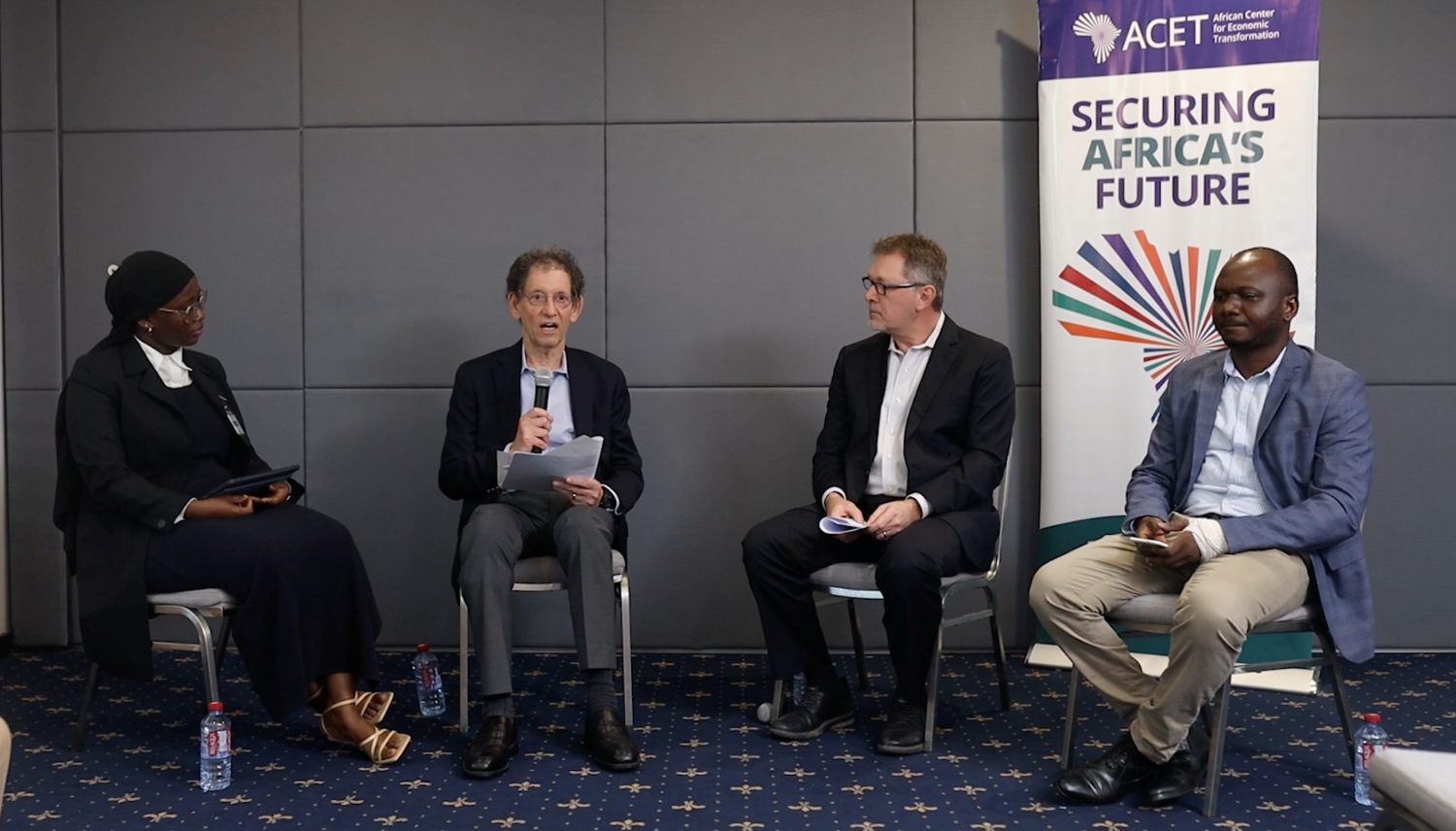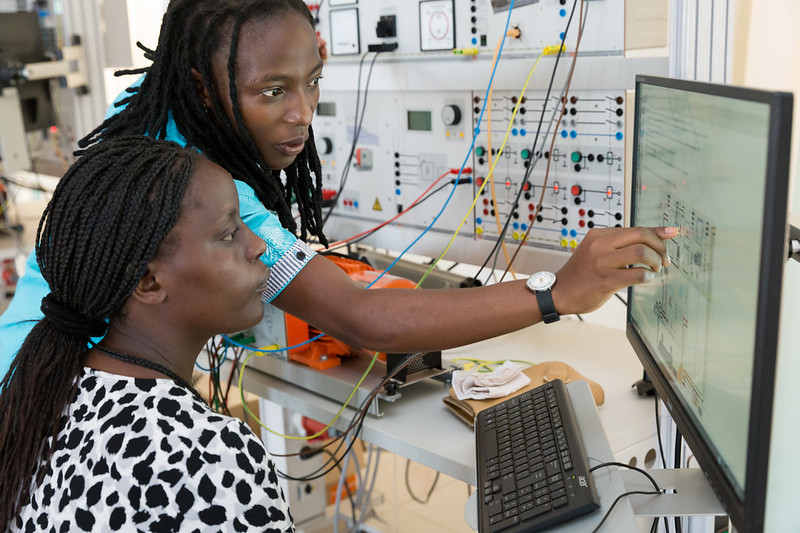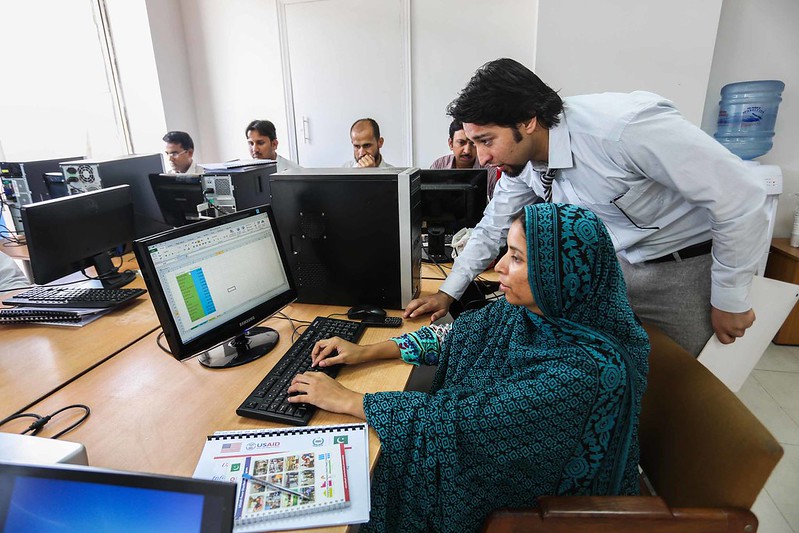Congressman Ed Royce, chair of the House Foreign Affairs Committee, along with a bipartisan list of cosponsors, is proposing the Digital GAP Act, designed to promote Internet access in developing countries and update foreign policy toward the Internet. And on the other side of Capitol Hill, Senator Ed Markey (D-MA), member of the Senate Foreign Relations Committee, introduced a bill also seeking to expand Internet access for developing country populations. That’s a worthy goal—as both bills note, over three billion people worldwide are already using the Internet and it can be a powerful force for change.
The Royce bill proposes that it is the sense of Congress (a suggestion, not an order) that the State Department re-task an existing Assistant Secretary position to be for “Technology, International Communications, and Cyberspace,” that USAID and the Peace Corps should do more to encourage equitable Internet access, efficient infrastructure development, and cyber security, and that the US should use its leverage in international organizations to the same ends. The Markey bill calls for a State Department Special Representative rather than an Assistant Secretary, suggests the President may want to set up an interagency working group on the topic, and authorizes appropriations $6.2 million to help State, USAID and OPIC do more to support Internet rollout. It is all sensible stuff, but for all the stated hope that the United States can partner to promote first-time access to 1.5 billion people by 2020, it is a little hard to tell what impact the proposals would have on increasing Internet access or use in the developing world. A global fund to support extended access would be one way to help ensure these targets were met.
The bills suggest some helpful policies for speeding rollout and use of the Internet, including competition and efficient spectrum allocation, infrastructure-sharing "build once" approaches that incorporate fiber ducting in infrastructure as it is built, and more money for information and communications technology (ICT) access in particular to overcome the gender digital divide. After conversations with a not-distantly-related ICT expert, I’d suggest adding a few more, including:
-
Support for rolling out country and regional Internet exchange points to reduce the cost and increase the quality of local Internet traffic
-
Removal of monopolies in international and backbone services as well as controls on technologies including voice and image over IP, and delivery of audio and video media without subscription to a traditional cable/satellite provider (‘Over the Top Content’)
-
US leadership and support for multi-country negotiation processes to roll out international capacity including satellite, air-based and submarine cable capacity to improve the quality and reduce the cost of Internet access, as well as international agreement on the reform of spectrum allocation to increase the spectrum available for mobile and wireless broadband access solutions
-
Promoting understanding and discussion of the tradeoffs inherent in telecommunications sector strategies that prioritize government revenues from license payments and other telecommunications payments over those that prioritize rollout of services or low prices for consumers through licensing or other obligations
-
Promoting government use of Internet technologies to increase transparency and improve the delivery of government services including (a) online access to laws, regulations, and procedures; tax, budget, procurement, and contracting data and documents; and performance metrics for the delivery of public services, and (b) online portals for the preparation, submission, and processing of taxes, fines, and payments; bids for government contracts; license, permit, and passport applications; and requests for government services
- An international push for policymakers and regulators across sectors to take into account the chilling effect of policies and regulations on Internet use—for example, poorly designed "know your customer" regulations that stall the expansion of mobile banking.
But the most impactful thing legislation could do is actually propose a financing mechanism to extend access.
There is a strong domestic case to be made that the United States should finance global network expansion, if it does it the right way, because it will benefit US consumers. That is because the value of a network increases exponentially with every extra person on it. If you are the only one on the planet with a telephone, there's no one to call. Add two more people, and you can call them and they can call each other—three connections. By the time ten people are on the network, there are 45 possible connections. That's a big reason why the US set up the rural telecoms fund—to extend the network to more people and so make it more valuable. But the benefits of a larger network don't stop at the water's edge—I'm very grateful that there's an Internet connection between me in DC and my aforementioned brother in the UK for example. And Google and Facebook are making money from advertising not just in the US, but across their 1.5 billion (Facebook) and 2.3 billion (Google) users worldwide. That suggests extending Internet access is a global public good—of benefit not just to the newly connected, but to Internet users worldwide.
So if Congress is feeling particularly ambitious, it should support the creation of a fund to back global network expansion. Of course, given the huge progress extending access that has been made by private competitive provision, any fund would need to ensure that it only provided funding where that competition had been allowed to work. And it would want to use a competitive approach to roll out access. Again, because it isn’t just US consumers who benefit from global network expansion, other countries should contribute to the fund as well—including countries that are home to the uncovered. But a global fund that began operations by competitively auctioning subsidies to extend the mobile signal footprint to cover the five percent of the world’s population still out of reach of ICT networks could make a considerable difference for a reasonable price tag.
Seeding such an initiative might take a little more than $6.2 million of US funding, but not a lot more: 10 years ago I estimated the cost of universal access at about $1.8 billion, when only 77 percent of the population was under the footprint. With lower technology costs and much-extended access, perhaps that’s down closer to $1 billion, perhaps half of which could be covered by domestic resources. If the US chipped in 15 percent of the international costs—about its share of global GDP—that would amount to around $75 million. By providing those resources, Congressmen Royce and Markey along with their colleagues could make a real impact on development prospects worldwide and directly benefit US firms and individuals at the same time.
Disclaimer
CGD blog posts reflect the views of the authors, drawing on prior research and experience in their areas of expertise. CGD is a nonpartisan, independent organization and does not take institutional positions.





